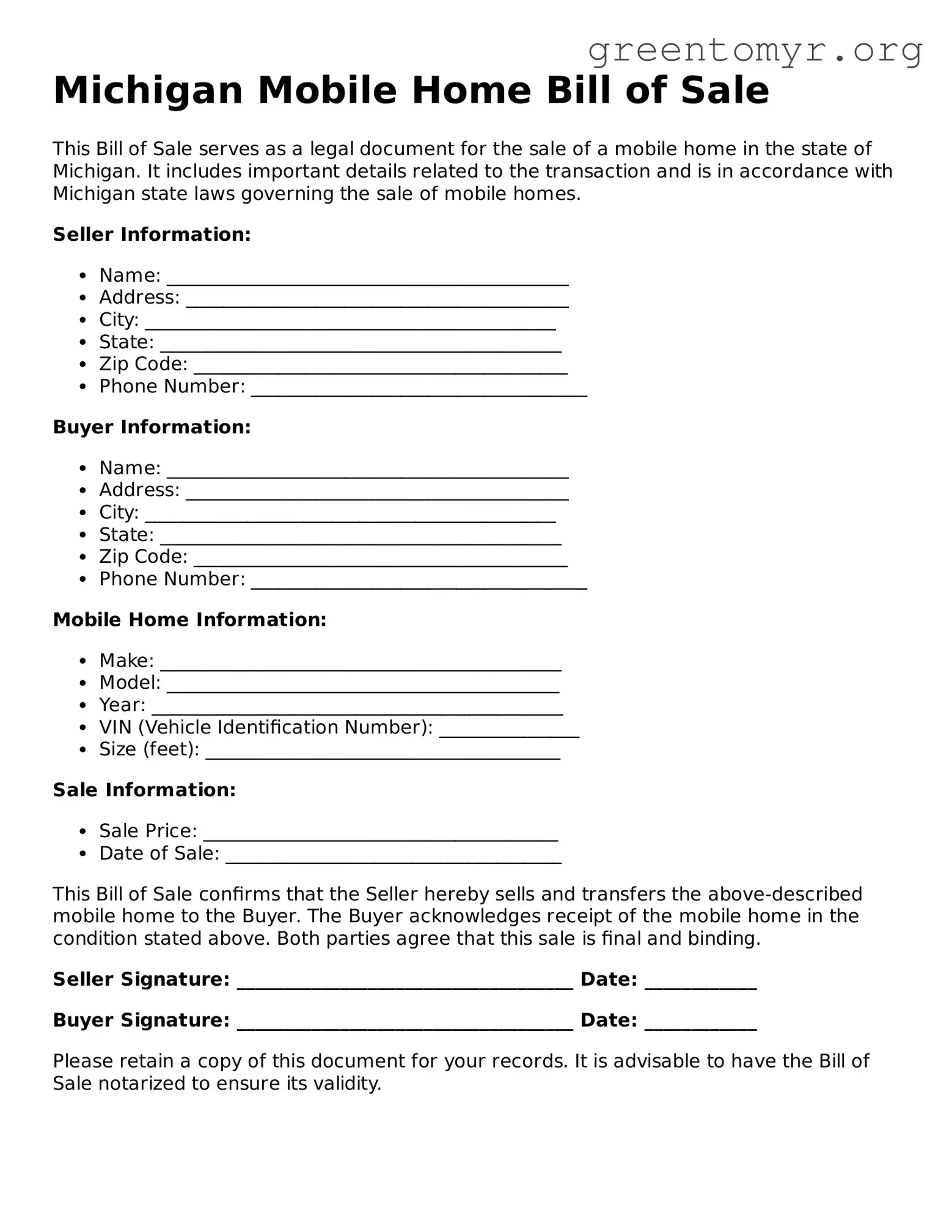What is a Mobile Home Bill of Sale?
A Mobile Home Bill of Sale is a legal document used to transfer ownership of a mobile home from one party to another. This document serves as proof of the transaction and typically includes details about the mobile home, such as its make, model, year, and Vehicle Identification Number (VIN). It protects both the seller and the buyer by documenting the sale and the agreement made between the two parties.
Why is a Mobile Home Bill of Sale important?
This document is crucial as it provides a clear record of the sale. With it, the buyer can register the mobile home with the state, while the seller can protect themselves from future claims regarding ownership. Without this bill of sale, disputes over ownership may arise, complicating the sale process and potentially leading to legal issues.
The following information is typically required on the Mobile Home Bill of Sale:
-
The names and addresses of both the seller and buyer
-
The make, model, year, VIN, and any other identifying details of the mobile home
-
The purchase price
-
The date of the sale
-
Any warranties or conditions included with the sale
Can I create my own Mobile Home Bill of Sale?
Yes, you can create your own Mobile Home Bill of Sale. However, ensure that it includes all necessary information to protect both parties and meets any specific state requirements. It may be wise to consult legal resources or utilize templates available online to ensure completeness and legality.
Do I need a notary for the Mobile Home Bill of Sale?
While not always required, having a notary public witness the signing of the Bill of Sale is highly recommended. A notarized document adds another layer of authenticity and helps prevent disputes about the transaction in the future. It is advisable to check your state’s specific requirements regarding notarization.
How does this document affect the registration of the mobile home?
To register the mobile home, the new owner will typically need to present the Bill of Sale to the appropriate state agency. This document serves as proof that ownership has been legally transferred and is often required to complete the registration process. Failing to present it may delay or prevent the registration.
Are there any costs associated with the Bill of Sale?
The Mobile Home Bill of Sale itself is usually free if it is created by the parties involved. However, if you choose to have it notarized, there may be a small fee for that service. Additionally, there could be fees associated with the registration of the mobile home following the sale.
Can I use a Mobile Home Bill of Sale from another state?
While a Mobile Home Bill of Sale from another state may be similar, it's essential to ensure that it complies with Michigan's specific requirements. Each state may have different laws governing mobile home sales, so it's crucial to verify that the version you use meets Michigan's regulations. Using a standardized form specifically designed for Michigan can help avoid issues.
What should I do if there is a dispute after the sale?
If a dispute arises after the sale, it is advisable to first attempt to resolve the matter directly with the other party. If that proves unsuccessful, consulting a legal professional may be necessary. Documentation, including the Bill of Sale and any communication regarding the sale, will be essential in supporting your case if further action is required.
